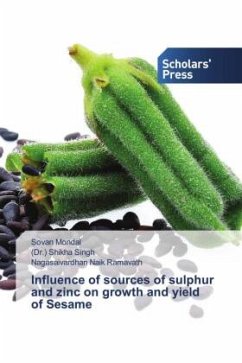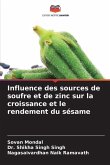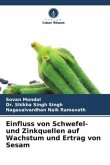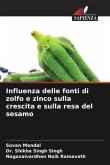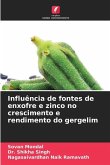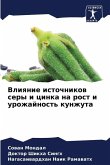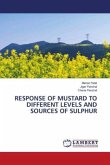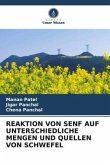Sesame (Sesamum indicum L.) belongs to family Pedaliaceae, commonly known as til, ellu, beniseed, simsim in India. It is one of the important edible oil seeds cultivated in India since ancient times. Sesame is called as "Queen of oil seed crop" by virtue of its excellent quality. Sesame is drought tolerant crop of semiarid regions. It is superior to other oil seed crop due to adaptability to varied agro-climatic condition and higher degree of drought tolerance. Sulphur is one of the essential elements required for the normal growth of plants and it plays an important role as a constituent of many plant processes as plant metabolism depends on S and a deficiency of this nutrient will cause basic metabolic impairment, which will not only reduce crop yield but also the quality of produce.Zinc is an indispensable micronutrient for crop growth, an important component of carbonic anhydrase and a stimulator of aldolase, which are involved in carbon metabolism Zn is also an integral component of several bio-molecules such as lipids, proteins and co-factor of auxins, and, therefore, it plays an important role in plant nucleic acid metabolism.

